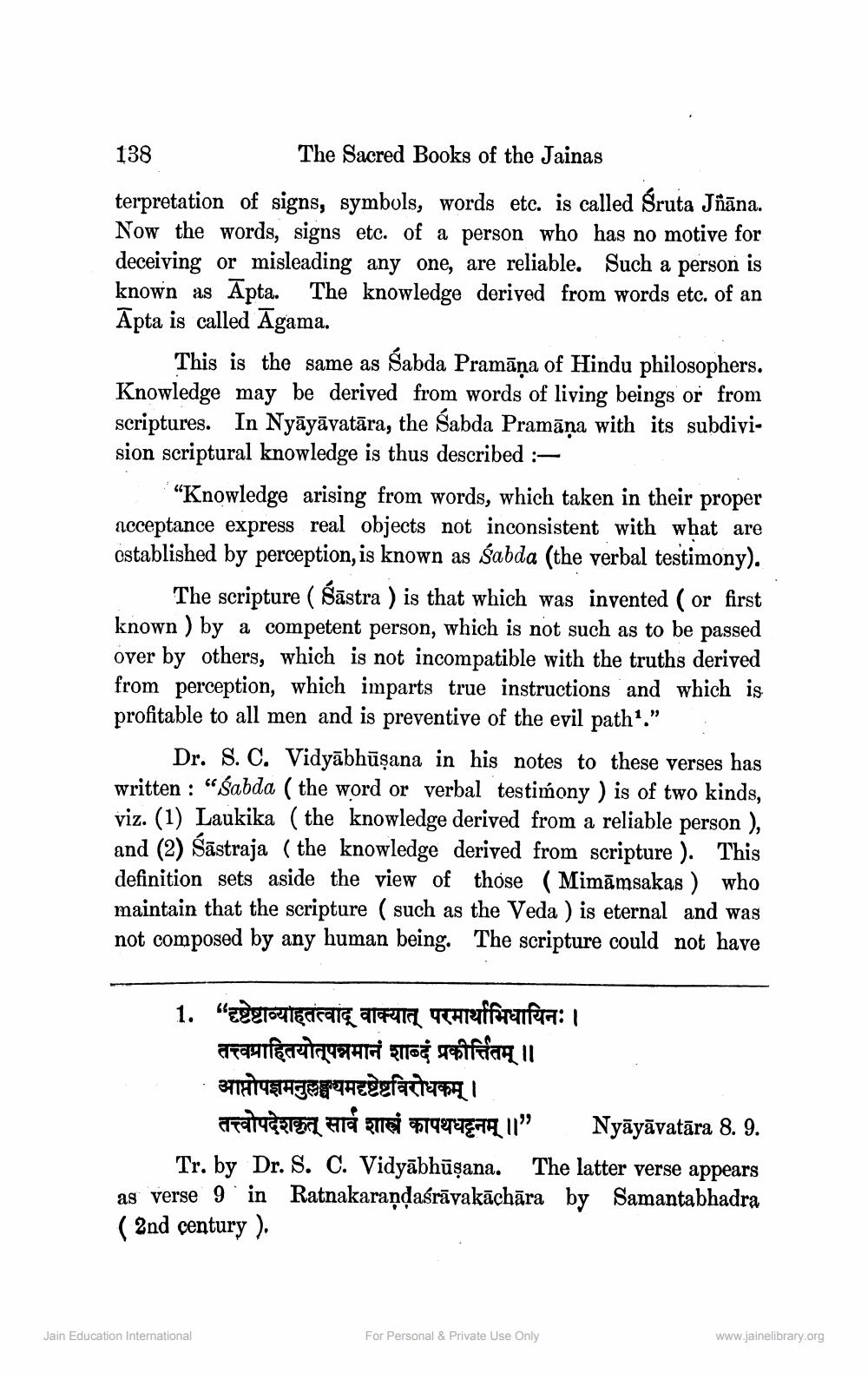________________
The Sacred Books of the Jainas
terpretation of signs, symbols, words etc. is called Śruta Jñana. Now the words, signs etc. of a person who has no motive for deceiving or misleading any one, are reliable. Such a person is known as Apta. The knowledge derived from words etc. of an Apta is called Agama.
138
This is the same as Sabda Pramāṇa of Hindu philosophers. Knowledge may be derived from words of living beings or from scriptures. In Nyāyāvatāra, the Sabda Pramāņa with its subdivision scriptural knowledge is thus described :
"Knowledge arising from words, which taken in their proper acceptance express real objects not inconsistent with what are established by perception, is known as Sabda (the verbal testimony).
The scripture (Sastra) is that which was invented (or first known) by a competent person, which is not such as to be passed over by others, which is not incompatible with the truths derived from perception, which imparts true instructions and which is profitable to all men and is preventive of the evil path1."
Dr. S. C. Vidyabhuṣana in his notes to these verses has written: "Sabda (the word or verbal testimony) is of two kinds, viz. (1) Laukika (the knowledge derived from a reliable person), and (2) Sastraja (the knowledge derived from scripture ). This definition sets aside the view of those (Mimamsakas) who maintain that the scripture (such as the Veda) is eternal and was not composed by any human being. The scripture could not have
1. “ दृष्टेष्टाव्याहतत्वाद् वाक्यात् परमार्थाभिधायिनः । तत्त्वप्राहितयोत्पन्नमानं शाब्दं प्रकीर्त्तितम् ॥ आप्तोपज्ञमनुल्लङ्घयमदृष्टेष्टविरोधकम् । तत्त्वोपदेशकृत् सार्व शास्त्रं कापथधट्टनम् ॥”
Nyāyāvatāra 8. 9.
The latter verse appears
Tr. by Dr. S. C. Vidyabhūṣana. as verse 9 in Ratnakaraṇḍaśrāvakachāra by Samantabhadra
(2nd century).
Jain Education International
For Personal & Private Use Only
www.jainelibrary.org




